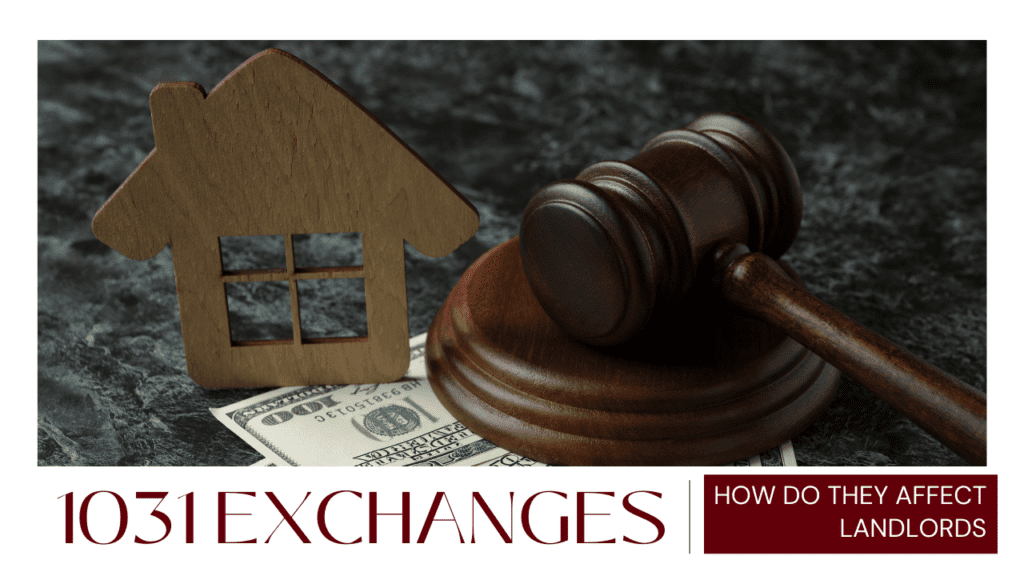
Section 1031 or a 1031 exchange, under US Internal Revenue Service’s tax code, allows an investor to defer the taxes on capital gain or losses that they would have to pay while exchanging one investment property for another.
If you are planning to sell your current property in Visalia and buy a better unit, a 1031 exchange might be an effective solution for you. Here are some commonly asked questions about the 1031 exchange, its criteria, and related rules in California.
What Is a 1031 Exchange?
A 1031 exchange can occur when you decide to swap your existing investment for another property or properties. It allows you to defer taxes on capital gains when you decide to buy another “like-kind” property. However, the investor has to purchase the new property within the next 45 days for the clause to be applicable.
Advantages Of 1031 Exchanges For Landlords
There are several reasons why investors should utilize the 1031 exchange, such as:
-
Deferring Taxes
As you can defer taxes on capital gains under a 1031 exchange, you have more capital in hand while purchasing the new property. Instead of paying substantial amount to the IRS, you can use it to acquire a better investment rental.
-
Portfolio Diversification
With a 1031 exchange, you would be able to diversify your portfolio with multiple investments and get exposure to new real estate markets. You can sell a non-performing asset to invest in other properties with better ROI.
Types Of Properties Qualifying for a 1031 Exchange
The first criterion for a 1031 exchange is that the property you sell and buy should be similar. Only like-kind properties qualify for 1031 exchange. Here, like-kind refers to the type of investment, like a commercial or residential unit. Also, the new property should be located in the United States.
Types Of Property Exchanges
You can opt for the following exchanges based on the requirements of the exchange.
- Simultaneous Exchange – Here, you can sell your existing property and buy another property on the same day. However, if the closing is delayed, the process will be disqualified, meaning you need to pay the tax on your full capital gains. You can complete the exchange with the help of a Qualified Intermediary.
- Delayed Exchange – This is the most common exchange under the 1031 section, where you can relinquish your existing property for purchasing a new property within a specified time. It allows you to use funds from the first sale to buy another. You have 45 days to decide your next investment property and 180 days to close.
- Reverse Exchange – A reverse 1031 exchange is when you find a new property and purchase it before selling your existing property. After purchasing a new property, you might wait to sell the property until its market value increases.
State Government Rules for 1031 exchanges in Visalia
Since 1031 exchange is a federal IRS policy, the rules for it in California are almost the same as they are throughout the country. However, some of the California 1031 exchange rules are very important such as:
- A 1031 exchange is for business or investment properties only and not for personal homes
- The value for a new property should be equal or greater
- The property should be ‘like-kind’
- The buyer and seller of the property must be the same taxpayer
- Investors should complete the exchange process within a timeline set by the IRS
- Although there is no limit on how many times an investor performs 1031 exchange, the IRS can inquire if the process occurs too frequently.
Whether you want to upgrade to a better property or diversify your real estate portfolio, a 1031 exchange can be a promising option for you. However, Visalia is a dynamic and competitive real estate market and it can be challenging to find the right property that fits your and the IRS’ requirements.
 We recommend that you get some advice from a trusted and experienced property management company that can guide you through the process of a 1031 exchange. At The Equity Group, we are a full-service property management company in Visalia, serving Tulare, Hanford, Lemoore, Dinuba, Reedley, and Porterville. We can help you understand current developments and updates in real estate and successfully navigate the process for a 1031 exchange.
We recommend that you get some advice from a trusted and experienced property management company that can guide you through the process of a 1031 exchange. At The Equity Group, we are a full-service property management company in Visalia, serving Tulare, Hanford, Lemoore, Dinuba, Reedley, and Porterville. We can help you understand current developments and updates in real estate and successfully navigate the process for a 1031 exchange.
For more details, connect with us at The Equity Group.
